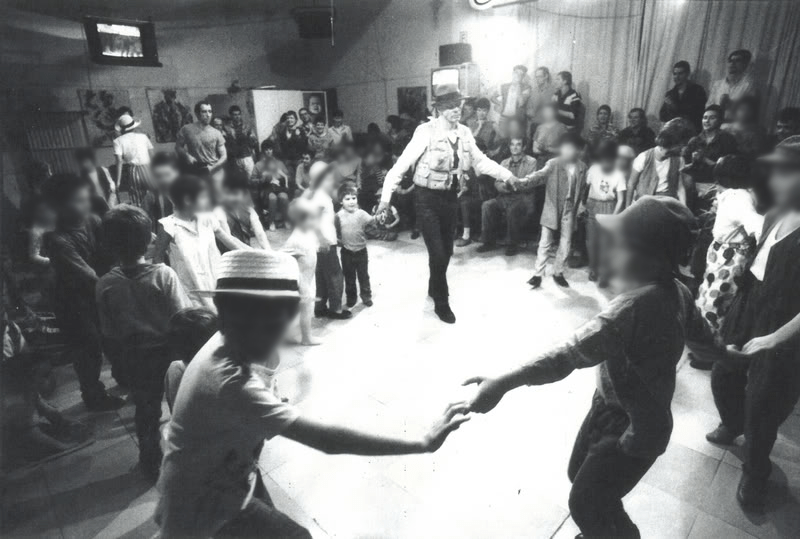It should come as no surprise that people tend to listen to songs that reflect what they’re going through at any given time. You could guess, for example, that someone who has Ariana Grande’s “thank u, next” on repeat is likely fresh from a break-up and doing quite well, all things considered.
A new study might explain just why that’s the case. In the study, published in the journal Personal Relationships, researchers from the University of Toronto found that the lyrics of people’s favorite songs tend to correspond with their attachment styles. According to Ravin Alaei, one of the study’s authors, that means people’s favorite songs about relationships not only mirror and validate their current thoughts and feelings, but also reveal patterns present across many of their relationships.
Videos by VICE
In psychology, attachment theory suggests that the bonds people form with their caregivers in their early childhood years set the foundation for how they build other relationships later on, romantic relationships included. The theory also suggests that there are predictable patterns in the ways people navigate their relationships.
These patterns are called attachment styles, and there are four of them. People with a “secure” attachment style trust their partners, communicate openly, and are generally able to build lasting healthy relationships. Those with an “anxious” attachment style often have a fear of rejection or abandonment, jealous tendencies, and a need for constant reassurance. People with an “avoidant” attachment style may fear intimacy and place immense value on independence, and therefore have difficulty trusting and building relationships with others. Those with an “anxious-avoidant” (aka “disorganized” or “mixed”) attachment style tend to have unpredictable and confusing behaviors that fluctuate like the subject of “Hot N Cold” by Katy Perry.
The researchers from the study asked around 570 people what their favorite songs were, then analyzed the lyrics of those songs to find what attachment style they expressed. They also asked the participants a series of questions about their relationship experiences. After analyzing over 7,000 songs, the researchers found that people tended to favor songs with lyrics that corresponded to their attachment styles.
According to the researchers, participants with a secure attachment style liked songs like “I Got You Babe” by Sonny & Cher, “At Last” by Etta James, and “I Love You” by the Plain White T’s.
Those with an anxious attachment style liked songs including “Wrecking Ball” by Miley Cyrus, “Hotline Bling” by Drake, and “Every Breath You Take” by The Police.
People with an avoidant attachment style listened to “No Scrubs” by TLC, “Take A Bow” by Rihanna, and “The Hills” by The Weeknd.
Those with an anxious-avoidant attachment style played songs like “I’m Not The Only One” by Sam Smith, “I Can’t Make You Love Me” by Bonnie Raitt, and “Rolling in the Deep” by Adele.
The study also analyzed the lyrics of over 800 Billboard hits from 1946 to 2015 and found that the lyrics have become more avoidant and less secure over time. According to the study, this suggested that song lyrics “mirrored societal trends of increasing social disengagement.”
“Popular music lyrics are running parallel to sociological trends of social disconnection—people valuing independence over reliance on others, and feeling more isolated,” said Alaei.
Music can of course help people articulate, understand, and even process their emotions, but the study says it can also keep them stuck on those same emotions.
An anxiously attached person may find the lyrics “These days, all I do is / Wonder if you’re bendin’ over backwards for someone else / Wonder if you’re rollin’ up a Backwoods for someone else / Doing things I taught you, gettin’ nasty for someone else” from Drake’s “Hotline Bling” to be “relatable content,” but continuing to relate to the lyrics could prevent them from answering the phone, if it does ring again.
Alaei suggested that people be more aware of how the songs they listen to affect them.
“Listen to the song a few times to help you process what you’re going through and express your thoughts and feelings. You can decide whether listening to songs that reflect your experiences back at you is either helping you or reinforcing destructive behaviors for yourself. At some point, you may find it more productive to listen to music that provides a sense of security.”
He also said that the next step in the research is to look into whether listening to music with lyrics that closely mimic people’s relationship experiences helps or hinders people’s relationship skills.
Follow Romano Santos on Instagram.
More
From VICE
-

Photo by Oliver Grove/Pymca/Shutterstock -

From VICE Magazine's The Photo Issue 2024. -

Evan Mock photo by Ted Schmitz / Red Bull -

Children at the Friedrichshof Commune dance with renowned artist Joseph Beuys. Inka, aged four, holds his right hand.

